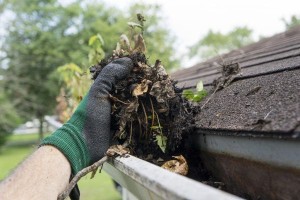How Technology is Revolutionizing the Cleaning Service Industry

The cleaning service industry is undergoing a significant transformation, driven by advancements in technology. These innovations are not only enhancing the efficiency and effectiveness of cleaning services but also improving customer experiences. As technology continues to evolve, the impact on the cleaning service industry is becoming increasingly profound.
One of the most notable technological advancements is the use of robotic cleaners. Autonomous vacuum cleaners and floor sweepers have become commonplace in both residential and commercial settings. These devices use sensors and artificial intelligence to navigate spaces and perform cleaning tasks with minimal human intervention. Robotic cleaners are especially popular in large commercial spaces, where they can cover vast areas with ease and consistency.
Sensor technology is another critical innovation shaping the cleaning industry. Sensors can detect dirt levels and foot traffic, providing data that helps optimize cleaning schedules. For instance, restrooms in high-traffic areas can be cleaned more frequently based on sensor data, ensuring they remain sanitary at all times. This data-driven approach not only enhances cleaning efficiency but also helps in resource allocation, ensuring that both time and cleaning products are used effectively.
The integration of mobile apps and digital platforms has also revolutionized the way cleaning services are booked and managed. Customers can now schedule, modify, or cancel cleaning appointments with a few taps on their smartphones. These platforms often include real-time tracking features, allowing customers to monitor the progress of cleaning tasks. Moreover, digital platforms facilitate transparent communication between service providers and clients, enhancing customer satisfaction.
Advanced cleaning equipment, such as electrostatic sprayers and high-efficiency particulate air (HEPA) filters, are raising the standards for cleanliness. Electrostatic sprayers evenly distribute disinfectants across surfaces, ensuring comprehensive coverage and increasing the effectiveness of disinfection austin roof cleaning. HEPA filters capture ultra-fine particles, including allergens and bacteria, leading to cleaner and healthier indoor air quality.
Remote monitoring and management systems are further enhancing the industry. These technologies allow cleaning supervisors to oversee operations remotely, ensuring that standards are met across different locations. Issues can be identified and addressed promptly, minimizing downtime and maintaining high standards of service delivery.
Sustainability has also driven technological innovation in the cleaning industry. Companies are developing cleaning solutions and equipment that reduce energy consumption and minimize environmental impact. For example, some modern vacuum cleaners are designed to use significantly less electricity while providing superior suction power and dirt removal capabilities.
In conclusion, the integration of technology into the cleaning service industry is transforming how services are delivered and perceived. From robotic cleaners and data-driven decision-making to mobile apps and advanced cleaning equipment, technology is making cleaning services more efficient, effective, and customer-friendly. As these innovations continue to evolve, they promise to further enhance the quality and efficiency of cleaning services, ultimately leading to cleaner and healthier environments.